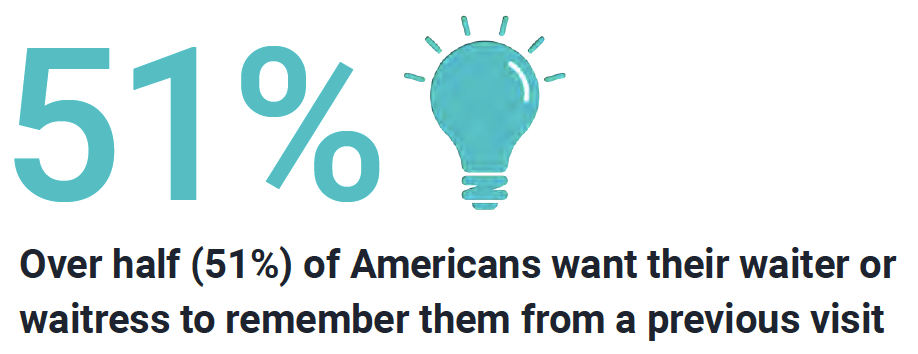Diners of the Future: Powering Personalization at Scale
Bianca Esmond
5 min read
Sep 4, 2018

Bianca Esmond
5 min read
Sep 4, 2018

Consumers of today expect technology to enhance, not hinder, their daily lives, and dining out is no different. In fact, over the last decade, guest expectations at restaurants have only risen. But what does that mean for the operators of today?
While people want the convenience and personalization that restaurant technology affords, they want it applied with an almost invisible touch. The challenge lies in walking a fine line between bringing new technology into your restaurant that the next generation of guests is comfortable using, while ensuring that any existing customers who are not part of the millennial generation feel familiarity in the dining experience. To power personalization at scale, you have to look to your guests and their wants and needs while also determining what makes sense for your property.
According to 51% of Americans, one of the best ways to personalize the dining experience is for a waiter or waitress to simply remember them from a previous visit. Though this might seem obvious, you have to have the right technology in place to ensure you’re able to proactively offer this experience to your guests — whether they visited last week, or a year ago for their anniversary. Here’s what else guests are looking for when they visit a restaurant:
But for all the aspects of restaurant technology guests do want, many are still hesitant to adopt some of the ‘newer’ technologies on the market into their booking or in-service experience. Whether this is because this technology is still in the early adopter phase, or because operators are understandably hesitant to change processes that have worked for them for decades, it’s important that any new technology is incorporated in measured doses that allow the familiarity of these dining experiences to shine through. For example, only:
In fact, in a recent study we found that though the 38% of Americans believe that too much technology ruins the restaurant experience, millennials are light years ahead in how they think about their dining out experiences. In fact, compared to Americans over 55 years old:
So what does this mean for restaurants? Most importantly, stay true to your brand, and don’t alienate your guests. Technology will be a defining feature in the future of restaurants, but it must be incorporated in measured doses, without losing the humanity of hospitality. By evolving with guests and enhancing the guest experience from behind the scenes, operators can begin to deliver on personalization at scale for everyone, keeping both new and existing customers happy.
Interested in learning more about guest expectations in 2018 and beyond? Download our recent report, Diners of the Future.